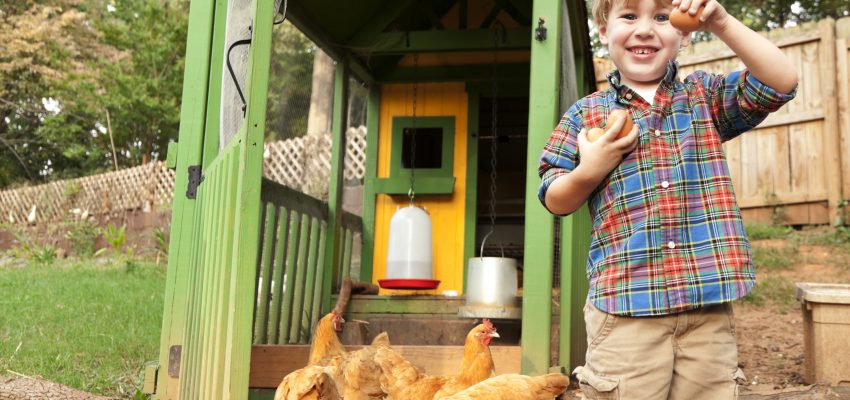Whatever stage you’re at on your journey towards sustainable living, you’re likely to have considered keeping chickens at some point. Heading out to the coop each morning to let the hens out and scoop up your freshly laid treasure is the dream of many – and luckily, achieving it is well within grasp for a lot of households. Chickens make great pets, and making sure they’re living the right lifestyle in turn helps to make yours more sustainable.
Part of the system
The practice of keeping chickens encompasses many tenets of a sustainable lifestyle. Getting eggs from your own backyard chickens avoids supporting industrial-scale farms which are some of the worst offenders for poor animal welfare. You also reduce your carbon footprint in turning your ‘food miles’ into food metres. Chickens are omnivores and will eat almost anything, so letting them pick through your kitchen scraps both gets your birds fed and reduces your household waste; just make sure to supplement their diet with a purpose-made organic chicken feed to ensure they’re getting enough of the right nutrients.
Your sustainable lifestyle
Keeping chickens benefits many different areas of your life, fitting perfectly into a sustainable lifestyle.
-
Chicken poo is a fantastic fertiliser and can be used on your garden to help your veggies or flowers to hit their peak potential.
-
Eggs from free-range chickens are more nutritious than those from intensive farming, giving your more omega-3 fatty acids and less cholesterol.
-
Chickens provide natural pest control, happily eating up insects and weeds in your yard.
-
While not as cheap as battery-farmed eggs, keeping your own chickens makes organic free-range eggs much cheaper than paying at a store for the same welfare and quality guarantees.
Your own flock
Before heading out to buy your new feathered friends, do a bit of research to make sure that you are ready for the commitment. Ecopeanut.com
Keeping chickens is a fantastic way to improve sustainability in the home and provide you with a tasty breakfast each morning – and with a bit of planning can be an achievable domestic dream for many.




